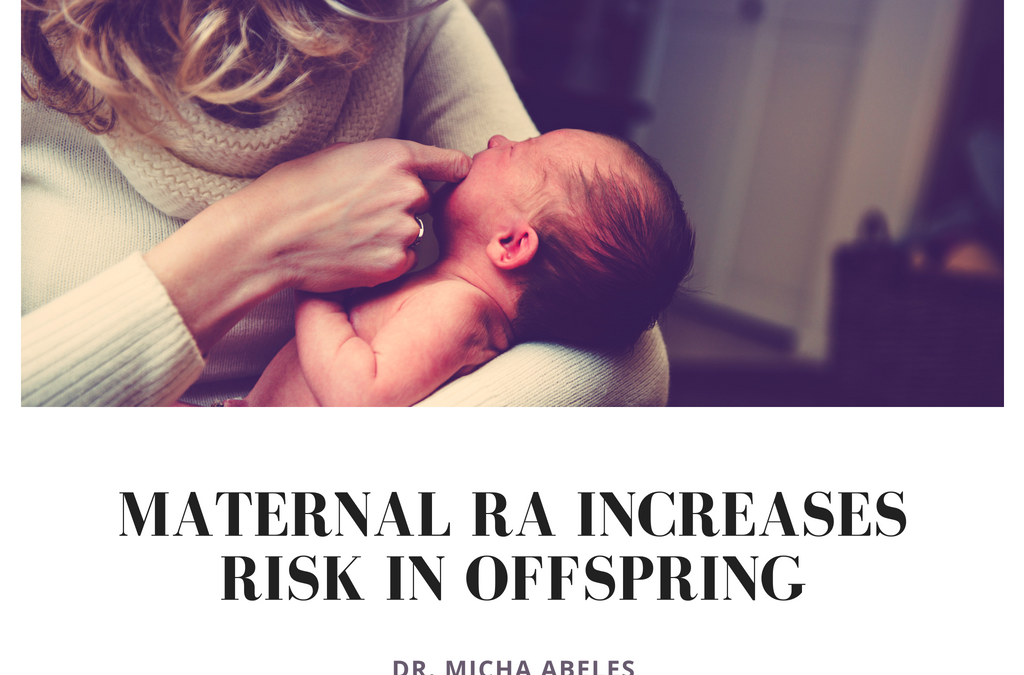Research has shown that children born to mothers with rheumatoid arthritis (RA) could be more susceptible to certain diseases, including RA itself.
For those unfamiliar with the disease, rheumatoid arthritis is a painful joint condition, occurring when the immune cells that normally lubricate the joints become inflamed instead. This causes pain, swelling, and redness around the affected areas. While the underlying cause is unknown, flare-ups can be more prevalent in humid conditions.
According to a Danish study, fetal exposure to RA increases the odds that the child itself will develop this ailment. Further, they could be up to three times as susceptible to epilepsy and a number of thyroid disorders, though the risk still remains relatively low: Children born to mothers without RA had a .7 percent chance of developing the disease, versus 1.6 percent born to those with RA.
The study, which took place from 1989 to 2013, examined 2106 pregnant mothers who suffered from RA, and over a quarter of a million others who were unafflicted. The findings showed that the developing fetuses of the afflicted mothers were also more susceptible to other ailments, such as chronic lung issues (including but not limited to asthma), anxiety, and personality disorders.
Taking these findings into account, should women who are afflicted with RA avoid becoming pregnant? The final choice rests with the individual, but there are other important factors that should be considered as well. For instance, there is no cure for rheumatoid arthritis, but there are a number of medications on the market that can help sufferers manage their symptoms. Those afflicted with rheumatoid arthritis could also be at greater risk for osteoporosis, so high consumption of vitamin D and calcium is recommended. While there’s no provable link between the consumption of certain foods and RA flare-ups, a diet high in those minerals and omega-3 acids can be helpful.
In short, as the risk is still minimal, and as many adults are able to manage their symptoms through the use of medication, these findings shouldn’t necessarily deter prospective mothers from becoming pregnant simply because they’ve been diagnosed with RA. Further, the onset of the disease generally occurs between the ages of 30 and 60, at which time the individual could be dealing with any number of other ailments; the risk of RA is not in and of itself a reason to forego pregnancy. It is just something to consider when couples wish to try for a child.

